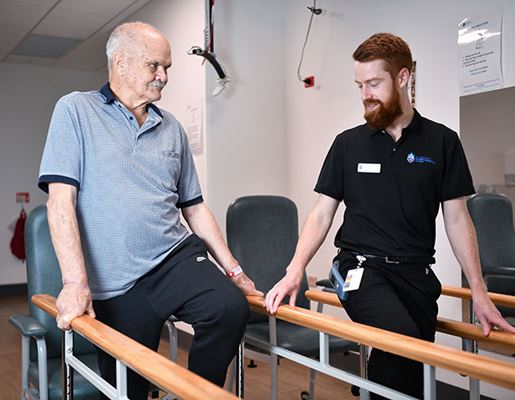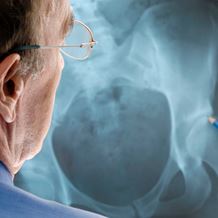Revision Hip Replacement
- Home
- Services
- Orthopaedics
- Hip Orthopaedics
- Hip Replacement
- Revision Hip Replacement
What is a revision hip replacement?
Total hip replacement surgery aims to allow patients to live full, active lives without significant pain. Over time, it is possible that some parts of the hip replacement may fail. If this happens, your doctor may recommend revision surgery as a way to replace any necessary parts.
The procedure involves removing the old parts of the hip replacement that are no longer working and replacing them with new ones. This is a complex procedure that depends on the extent of the replacements required. The surgeon will examine which implants need replacing, and in certain circumstances, additional metal pieces or bone grafts can be used to prepare the joint for specialised revision implants.
During surgery, your surgeon will examine which implants need replacing. In certain circumstances, additional metal pieces or bone grafts can be used to prepare the joint for specialised revision implants.
Recovery from this operation is generally slower as it is a longer and more involved procedure, but the long-term outcomes include reduced pain, greater mobility and restored function.
Is it right for me?
If you are starting to experience familiar hip aches and pain, and your range of motion becomes limited it could be a sign that your hip replacement is in need of revision surgery. The lifespan of your hip replacement is difficult to estimate as there are many factors involved. It would be reasonable to expect at least 15-20 years. If you had hip replacement surgery as a younger, more active person, it is quite likely that you will outlive your implants and at some point, they will need replacing.
Other reasons for revision surgery include loosening (where the implant has come away from the bone), infection, recurrent dislocation, fracture or metal allergy – a reaction caused by tiny particles breaking away from the implant. Patients with pre-existing conditions such as diabetes or obesity are also more likely to experience complications from surgery and require revision treatment. Sometimes, the symptoms may only be mild. Your surgeon will use imaging to help determine if and when the procedure is necessary.
Preparation
Before undergoing the procedure, your doctor will undergo a thorough medical evaluation to ensure you're healthy enough for surgery and anaesthesia. Some medications may need adjustments or temporary discontinuation prior to surgery.
Follow up
Postoperative care often includes physical therapy to aid in recovery and improve mobility, pain management medications, and possibly blood thinners to prevent clot formation. Regular follow-up appointments with your orthopaedic surgeon are crucial to monitor the healing process and ensure the implant is functioning as intended.

Hip replacement approaches
Other hip surgeries
Revision Hip Replacement FAQ

How much will my hip surgery cost?
Understanding the cost of your treatment is an important consideration before committing to surgery, but it’s not always easy to find the information you need. Learn more about the factors which contribute to the cost of your surgery:
What will my treatment and recovery look like?
Familiarising yourself with your treatment program and understanding the recovery process are important steps to take on the pathway to surgery.

Find a hospital with orthopaedic services
Our Hospitals
Related services

Hip Orthopaedics
We provide specialist care and expertise for a range of problems affecting your hips.
Read More
Partial Hip Replacement
Removes and replaces only the ball of the hip joint. The hip socket is left unaffected.
Read More
Find a Specialist
Talk to our world-leading orthopaedic specialists about the most suitable treatment options.
Read More